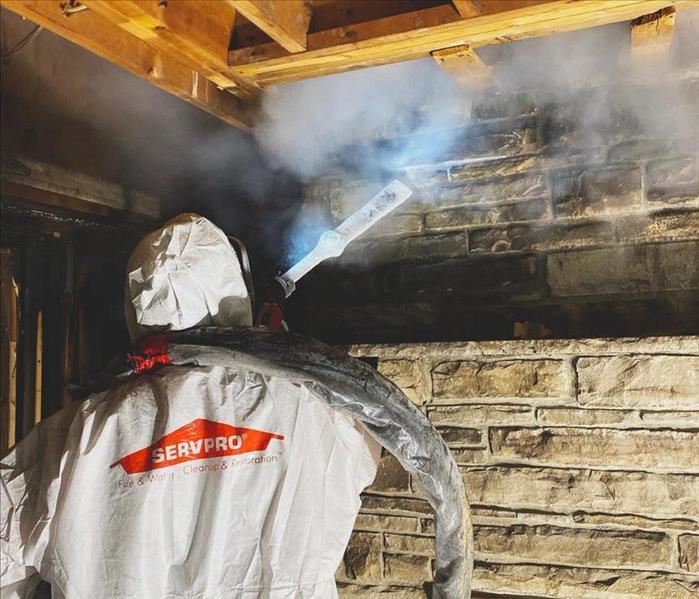SERVPRO Fire Damage Process
8/7/2022 (Permalink)
After the fire trucks leave, your home likely suffers from fire and smoke damage and extensive water damage from firefighting efforts. SERVPRO® has the specialized fire restoration training needed to restore your home to pre-fire condition.
Every fire damage event is a little different, and requires a unique solution, but the general process stays the same. The steps listed below illustrate our process for the “typical” fire damage emergency.
Step 1: Emergency Contact
The restoration process begins when you give us a call. Our specialist will ask a series of questions regarding the fire damage event that will help us arrive quickly with the appropriate equipment and resources.
Step 2: Inspection and Fire Damage Assessment
We will carefully inspect and test adjoining rooms of your property to determine the extent of the fire, smoke, and soot damage. This step is crucial to developing a plan of action.
Step 3: Immediate Board-Up and Roof-Tarp Service
Fire damage can often compromise windows, walls, and roofs. To maintain security and to protect against further damage, SERVPRO can board up missing windows and walls and place tarps on damaged roofs.
Step 4: Water Removal and Drying (if water damage is present)
The water removal process begins almost immediately and removes the majority of the water. We will then use dehumidifiers and air movers to remove the remaining water and complete the drying process.
Step 5: Removal of Smoke and Soot from All Surfaces
SERVPRO uses specialized equipment and techniques to remove smoke and soot from ceilings, walls, and other surfaces.
Step 6: Cleaning and Sanitizing
We will clean all of the restorable items and structures that were damaged by the fire. We use a variety of cleaning techniques to restore your belongings to pre-fire condition. We’re also trained to remove odors using industrial air scrubbers and fogging equipment.
Step 7: Restoration
Restoration is the final step—getting your home or business to its pre-fire condition. Restoration may involve minor repairs, such as replacing drywall, painting, and installing new carpet; or it may entail major repairs such as the reconstruction of various areas or rooms in a home or business.





 24/7 Emergency Service
24/7 Emergency Service
